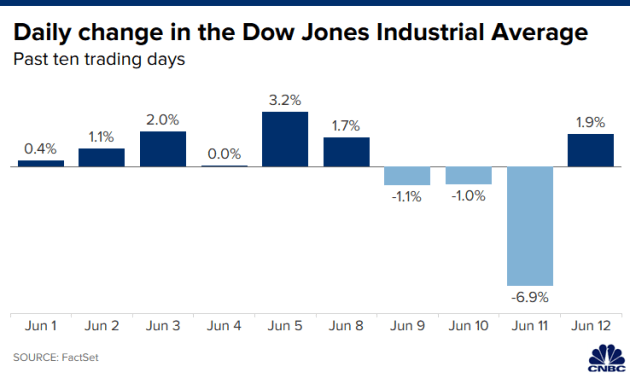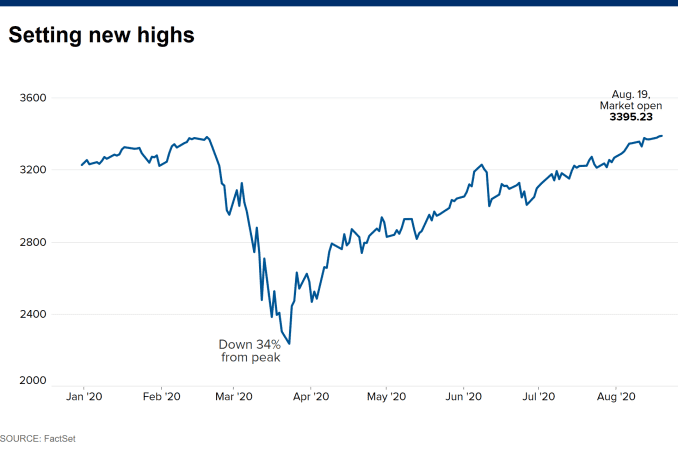
Stock futures dropped in early trading on Monday, pointing to more losses ahead as investors grapple with signs of a second wave of coronavirus cases as the U.S. economy reopens.
Futures on the Dow Jones Industrial Average lost 624 points, or 2.5%. The move implied a loss of about 690 points at the open. S&P 500 futures fell 2.2%. Nasdaq-100 futures dropped 1.7%.
Stocks which stand to benefit the most from a successful reopening led the losses in premarket trading. Carnival and Royal Caribbean cruise lines each lost more than 5%. United Airlines lost 6%. Retailers Kohl’s and Gap declined. These types of stocks surged in May as investors bet that the worst of the virus was over.
The early action in futures markets followed a big pullback last week triggered by rising fears of a resurgence in the virus as well as investors’ profit-taking after the massive comeback.
The Dow and S&P 500 lost 5.5% and 4.7% last week, respectively, while the Nasdaq shed 2.3%. All three major equity benchmarks suffered their worst week since March 20.
“The meltup may need to take a break, as sentiment has turned too bullish too rapidly,” Ed Yardeni, president and chief investment strategist at Yardeni Research, said in a note on Sunday. “Now that reopening is happening, there’s fear of suboptimal results: less social distancing triggering a second wave of the virus, followed by another round of lockdowns.”
States in the reopening process including Alabama, California, Florida and North Carolina are reporting a rise in daily new coronavirus cases. Texas and North Carolina reported a record number of virus-related hospitalizations Saturday.
Meanwhile, Governor Andrew Cuomo warned New Yorkers against triggering a second wave of the coronavirus. He said on Sunday the state has received 25,000 complaints about businesses violating rules of the phased reopening, threatening to take liquor licenses from bars and restaurants.
“The Covid deterioration in certain states will stay an overhang for the market, although it would take a sustained increase in US numbers overall to spark a dramatic shift in the narrative,” Vital Knowledge founder Adam Crisafulli said in a note on Sunday.

Treasury Secretary Steven Mnuchin told CNBC on Thursday that shutting down the economy for a second time to slow Covid-19 isn’t a viable option as it will “create more damage.”
After last week’s sell-off, the S&P 500 is down 5.8% on the year, still more than 38% higher from its March low. The 30-stock Dow is down 10.2% year to date.
























